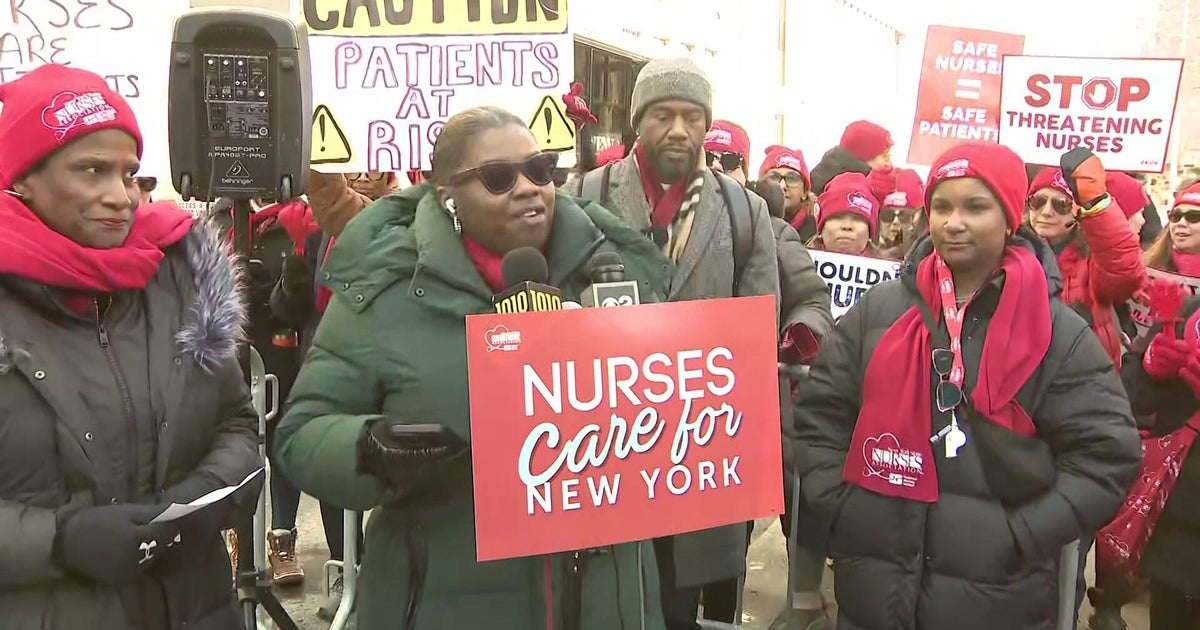Kirk 'Doing Better Than Expected' After Stroke
Updated 01/24/12 - 5:30 p.m.
CHICAGO (CBS) -- U.S. Sen. Mark Kirk's neurosurgeon said Tuesday that Kirk is alert, talking, answering questions and "doing better than expected" after his weekend stroke.
But, as CBS 2's Vince Gerasole reports, neurosurgeon Dr. Richard Fessler also said Kirk's road to recovery will be a long one.
"Senator Kirk is doing very well. In fact, he's doing better than I expected he would be doing at this point," Fessler said.
He also said Kirk is eager to get back to work.
"He asked for his Blackberry yesterday, so he is ready to go back to work," Fessler said with a grin. But Kirk will remain in the hospital for several days, followed by weeks or months of rehabilitation. Doctors have said they don't know when he might be cleared to go back to work.
LISTEN: WBBM Newsradio's John Cody reports
Podcast
As WBBM Newsradio's John Cody reports, Fessler said Kirk's speech is slurred from facial paralysis and he's showing little sign of movement on the left side, but his answers to test questions are fast and accurate.
"There are very standard questions you ask them. What is your name? What is the date? Who are you? Those are orientation questions," Fessler said.
After asking such questions, doctors gave Kirk simple commands to further test his cognitive functions.
"Do this, do that and see if in fact he does them quickly and how long it takes him to do this. So he is completely oriented and he follows commands very briskly," Fessler said. "The fact that he is doing all of those things this quickly after having had the stroke and having had the surgery is a very good sign," Fessler said.
Doctors have said Kirk could have long-term difficulty moving his left arm and possibly his left leg, but chances are good he will make a full mental recovery from the stroke. Therapy will help Kirk improve his speech and the movement of his left arm and leg.
Fessler also refuted reported claims by Kirk's ex-wife that the senator ate poorly, didn't work out, and suffered from panic attacks and migraines.
"His lifestyle over the last years that I've known him has been very healthy. He works out regularly he eats a good diet," Fessler said. "I can't imagine being a politician and not having migraines."
Kirk began suffering dizziness and a headache on Saturday and checked in to Northwestern Lake Forest Hospital. He was transferred to Northwestern Memorial Hospital on Sunday, according to Fessler.
Sunday night, Kirk's neurological condition began deteriorating, so doctors were forced to perform a three-hour surgery to remove a 4-inch by 8-inch piece of the senator's skull to reduce swelling on the right side of his brain, caused by the stroke.
"The left side of our brain controls our ability to speak, understand, and controls our higher cognitive functions; higher cortical thinking. So, if he had a stroke on the left side … it would affect those and those are the functions that make us who we are," Fessler said. Being on the right side, those are not affected. It's primarily affecting his motor functions and that's why a stroke on the left side is generally considered much more serious than a stroke on the right side."
Fessler said Kirk's breathing tube haw been withdrawn. Kirk faces four or five more days in intensive care, then an operation to replace the skull piece removed to ease swelling after the stroke.
Fessler said Kirk faces a long rehabilitation down the road. It's too early for doctors to say when Kirk can return to work.
"The learning process to re-establish your life following a stroke is a long process," Fessler said.







